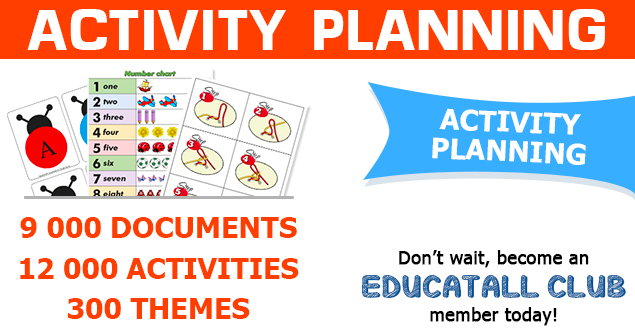
What to do when you've lost your positive outlook
I frequently meet parents and early childhood educators who are exhausted, feeling totally drained, at the end of their rope. They feel completely lost and are unsure how to deal with their child's behavior or the behavior of the children they work with. At times, I must say managing my children's behavior daily has left me discouraged too. Even if my parental toolbox is filled to the brim with tips and tricks to make daily life easier, I must admit that it is sometimes difficult to apply different perspectives when you are right smack in the middle of a difficult situation.
For anyone who works with children, discipline (and everything it involves) is of utmost importance. Managing and enforcing discipline can take its toll. For different reasons, I have seen many parents and early childhood educators at their wit's end. Among these reasons are a lack of resources, a difficult child, unknown situations they have never faced before, physical fatigue that prevents them from functioning normally, and excessive workloads. This list could go on and on. No matter the reason, it's important for these adults to know that all is not lost. I like to believe that every challenge we face shows up for a reason, to help us grow.
On paper, discipline is great. Books are packed with advice and the articles I write abound with tips and tricks to simplify daily life. However, between the written "recipe" and reality, adjustments are often necessary. After all, even the best recipe can sometimes produce unexpected results. Read on to find out what you can do when you've lost your positive outlook.
Step 1: First of all, you must STOP. Take time off to recharge your batteries. Take a day off, plan a special outing, go on vacation if you can. Do whatever you must do to replenish your energy reserves. This is the first step. A parent or early childhood educator who feels good will have the confidence and drive to intervene. Remember these three words: stop, breathe, and energy.
Step 2: Once your energy levels are replenished, ANALYZE the situation. Write down the elements you identify and list any behaviors you observe. Very often, putting what you are going through on paper gives you the opportunity to take a step back. This truly is the best way to analyze a situation from different angles. Be sure to write absolutely everything to empty your mind and ensure you have all the information pertaining to the situation. This will help you see it objectively.
Step 3: At this stage, your situation probably seems like an insurmountable mountain. You must REDUCE THE PERCEIVED IMPORTANCE of the situation and SEE IT OBJECTIVELY. You previously (step 2) put all observable and measurable facts down on paper. Proceed one step at a time. Identify your priorities, what you wish to work on first. Put all your energy into intervening, attempting to fix one or two priorities at first. Choose your battles to ensure you make it to your mountain's first ledge. Continue to move forward one step at a time.
Step 4: Write your action plan. You have established the problematic behavior as well as your priorities. Now, write down WHAT YOU WILL DO. Creating an action plan involves writing down the means you will use to reach your goal. Your action plan must be as simple as possible. This exercise must be done for each type of behavior you are facing.
Step 5: Evaluate the results, but focus on the POSITIVE. Celebrate even the smallest successes, yours and those of the child or children. Make note of the difficulties you have overcome. Change your perception of the situation. Seeing a situation as a challenge instead of a difficulty will provide you with the strength and willpower to push through.
In conclusion, do not hesitate to seek help if you are feeling overwhelmed. Do not face a difficult situation alone. Professionals can act as consultants or simply represent a sympathetic ear. A fresh take on the situation or a neutral perspective can help resolve a situation. We are stronger together...
Maude Dubé, Specialized educator

 Home
Home Theme activities
Theme activities
 Babies and toddlers
Babies and toddlers
 Arts and crafts
Arts and crafts
 Science
Science
 Creative recipes
Creative recipes
 Tips and tricks
Tips and tricks
 Special needs
Special needs
 Extra activities
Extra activities
 Educ-TV
Educ-TV
 Newsletter
Newsletter  Online store
Online store Educatall club
Educatall club


